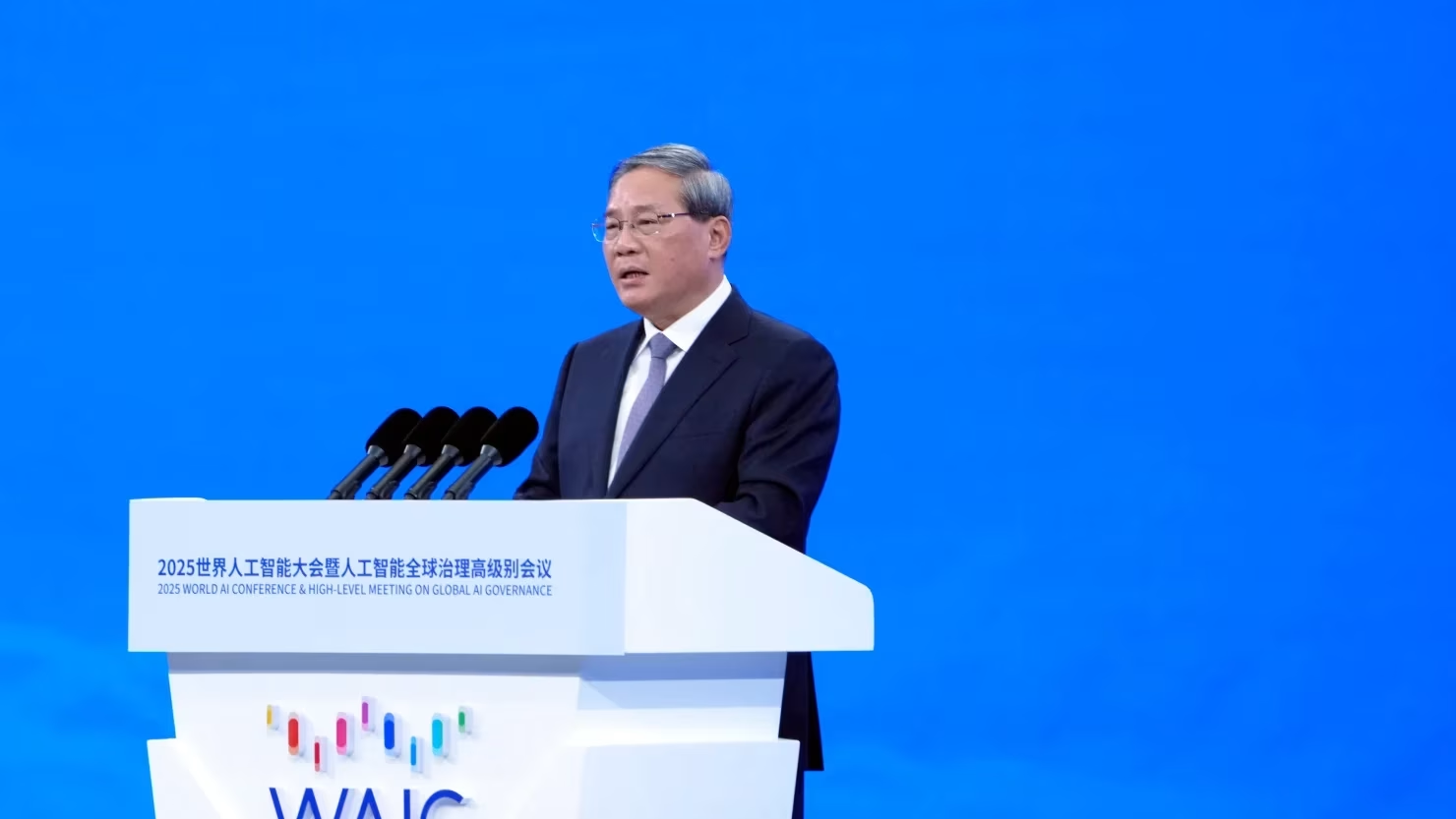China's Bold AI Governance Play: A Call for Global Cooperation Amidst Monopoly Fears
Shanghai, the bustling heart of China's tech ambitions, recently played host to the World Artificial Intelligence Conference (WAIC), an event that always seems to buzz with innovation. But this year, beyond the dazzling displays of new tech, a significant policy proposal emerged from none other than Chinese Premier Li Qiang. His message was clear, direct, and frankly, quite timely: China wants to work with other countries on AI, and they've laid out a plan for global governance.
Premier Li Qiang's Warning: AI as an "Exclusive Game"
Li Qiang didn't mince words, did he? During his address at WAIC, he articulated a profound concern that resonates with many across the globe: the potential for artificial intelligence to become, as he put it, "an exclusive game for a few countries and companies." This isn't just rhetoric; it's a direct challenge to the burgeoning tech monopolies we're seeing, particularly in the AI space. He warned explicitly about "technological monopolies," suggesting that if left unchecked, AI's benefits and control could be concentrated in the hands of a select few, leaving the rest of the world playing catch-up or, worse, entirely excluded.
This perspective isn't entirely new, but hearing it from China's premier at such a high-profile international conference certainly amplifies its significance. It underscores a growing global anxiety about who will ultimately control this transformative technology. And let's be honest, the idea of AI becoming an exclusive club for a handful of powerful players is a pretty unsettling thought for anyone concerned about equitable global development.
Proposing a "World AI Cooperation Organization"
So, what's China's proposed solution to this looming threat of monopolization? Li Qiang proposed the creation of a "world AI cooperation organization." Now, that's a bold move. It suggests a vision for AI governance that's truly multilateral, a stark contrast to the often bilateral or fragmented discussions we've witnessed so far. The idea is to foster international collaboration on AI development, security, and ethical guidelines, ensuring that the benefits of AI are shared more broadly and its risks are managed collectively.
Think about it: an organization dedicated solely to AI cooperation. It could potentially set international standards, facilitate data sharing (under strict protocols, of course), and perhaps even coordinate research efforts to tackle global challenges using AI. It's an ambitious vision, no doubt, but one that aligns with the conference's overarching theme of "Global Solidarity in the AI Era." Many participating countries and organizations at WAIC seemed to share this sentiment, recognizing the inherent need for collective action in an area as impactful as AI.
The Geopolitical Chessboard: Context Behind the Proposal
It's impossible to discuss this proposal without acknowledging the elephant in the room: the escalating tech rivalry between the United States and China. We've seen the US implement stringent export controls on advanced technologies, especially AI chips, ostensibly to curb China's technological advancement. So, when China proposes a global cooperation body, it's not just about altruism; it's also a strategic play to counter these pressures and ensure a more level playing field, or at least, one where they have a stronger voice in shaping global norms.
This proposal can be viewed as a direct response to those policies. By advocating for a multilateral framework, China aims to mitigate the impact of unilateral restrictions and position itself as a leader in advocating for equitable AI governance. They're coming to the table not just with ideas, but with demonstrable technological muscle. It's a clear signal that despite external pressures, China intends to remain a central player in the global AI landscape, not just as a developer but as a rule-maker.
China's AI Prowess on Display at WAIC
And let's be clear, China isn't just talking the talk. The WAIC itself was a testament to their commitment, with over 800 companies showcasing 3,000 high-tech products, 40 large language models (LLMs), and 60 robots, that's a serious display of domestic capability and global ambition, isn't it? Shanghai, as the host city, further cemented its reputation as a global tech hub, attracting significant investment and talent. The sheer scale of the conference underscores China's massive investment in AI and its desire to lead in this critical domain.
The presence of so many cutting-edge technologies, from sophisticated LLMs to advanced robotics, highlights that China is rapidly advancing its AI capabilities. This technological strength provides a strong foundation for their diplomatic push for global AI governance.
Implications and the Road Ahead
If this proposed "world AI cooperation organization" gains traction, it could fundamentally reshape how AI is developed, deployed, and governed globally. Imagine, for a moment, a world where international standards for AI security, ethics, and development are truly collaborative, not dictated by a select few. That's the ideal scenario, I suppose. It could lead to a more inclusive approach to AI innovation, potentially benefiting developing nations and smaller companies who might otherwise be left behind.
Of course, the path to such an organization is fraught with challenges. Geopolitical tensions, differing national interests, and the sheer complexity of AI governance make it a monumental task. Will major Western powers buy into a Chinese-led initiative, especially given the current climate? That's the million-dollar question. However, the very act of proposing it forces a global conversation that is desperately needed. Premier Li Qiang's proposal at WAIC isn't just another talking point; it's a significant marker in the ongoing global discourse around AI. It underscores China's ambition to not just be a leader in AI development but also a key architect of its future governance. We'll have to wait and see how the world responds, but one thing's for sure: the conversation around AI's global future just got a whole lot more interesting.
